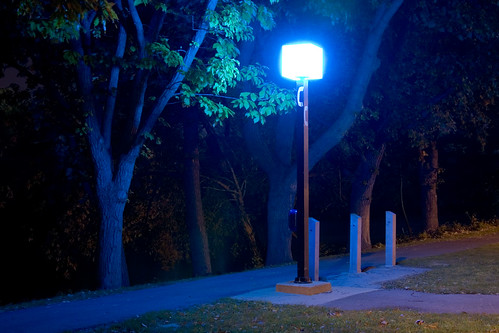 Cross-posted from the Hunter Women's Right Coalition blog. By HWRC President Sabrina Caprioli aka HappyFeminist, borrowing heavily from RAINN.
Cross-posted from the Hunter Women's Right Coalition blog. By HWRC President Sabrina Caprioli aka HappyFeminist, borrowing heavily from RAINN.
1 out of every 6 American women has been the victim of an attempted or completed rape in her lifetime (14.8% completed rape; 2.8% attempted rape).
117.7 million American women have been victims of attempted or completed rape.
19 of every 10 rape victims were female in 2003.
2While about 80% of all victims are white, minorities are somewhat more likely to be attacked.
Lifetime rate of rape /attempted rape for women by race1* All women: 17.6%
* White women: 17.7%
* Black women: 18.8%
* Asian Pacific Islander women: 6.8%
* American Indian/Alaskan women: 34.1%
* Mixed race women: 24.4%
MenAbout 3% of American men — or 1 in 33 — have experienced an attempted or completed rape in their lifetime.
1* In 2003, 1 in every ten rape victims were male.
2* 2.78 million men in the U.S. have been victims of sexual assault or rape.
1Children15% of sexual assault and rape victims are under age 12.
3* 29% are age 12-17.
* 44% are under age 18.3
* 80% are under age 30.3
* 12-34 are the highest risk years.
* Girls ages 16-19 are 4 times more likely than the general population to be victims of rape, attempted rape, or sexual assault.
7% of girls in grades 5-8 and 12% of girls in grades 9-12 said they had been sexually abused.
4* 3% of boys grades 5-8 and 5% of boys in grades 9-12 said they had been sexually abused.
In 1995, local child protection service agencies identified 126,000 children who were victims of either substantiated or indicated sexual abuse.
5* Of these, 75% were girls.
* Nearly 30% of child victims were between the age of 4 and 7.
93% of juvenile sexual assault victims know their attacker.
6* 34.2% of attackers were family members.
* 58.7% were acquaintances.
* Only 7% of the perpetrators were strangers to the victim.
Effects of RapeVictims of sexual assault are:7
3 times more likely to suffer from depression.
6 times more likely to suffer from post-traumatic stress disorder.
13 times more likely to
abuse alcohol.
26 times more likely to abuse drugs.
4 times more likely to contemplate suicide.
Pregnancies Resulting from RapeIn 2004-2005, 64,080 women were raped.
8 According to medical reports, the incidence of pregnancy for one-time unprotected sexual intercourse is 5%. By applying the pregnancy rate to 64,080 women, RAINN estimates that there were 3,204 pregnancies as a result of rape during that period.
This
calculation does not account for the following factors which could lower the actual number of pregnancies:
* Rape, as defined by the NCVS, is forced sexual intercourse. Forced sexual intercourse means vaginal, oral, or anal penetration by offender(s). This category includes incidents where the penetration is from a foreign object such as a bottle. Certain types of rape under this definition cannot cause pregnancy.
* Some victims of rape may be utilizing birth control methods, such as the pill, which will prevent pregnancy.
* Some rapists may wear condoms in an effort to avoid DNA detection.
* Vicims of rape may not be able to become pregnant for medical or age-related reasons.
This calculation does not account for the following factors which could raise the actual number of pregnancies:
* Medical estimates of a 5% pregnancy rate are for one-time, unprotected sexual intercourse. Some victimizations may include multiple incidents of intercourse.
* Because of methodology, NCVS does not measure the victimization of Americans age 12 or younger. Rapes of these young people could results in pregnancies not accounted for in RAINN's estimates.
References
1. National Institute of Justice & Centers for Disease Control & Prevention. Prevalence, Incidence and Consequences of Violence Against Women Survey. 1998.
2. U.S. Department of Justice. 2003 National Crime Victimization Survey. 2003.
3. U.S. Department of Justice. 2004 National Crime Victimization Survey. 2004.
4. 1998 Commonwealth Fund Survey of the Health of Adolescent Girls. 1998.
5. U.S. Department of Health & Human Services, Administration for Children and Families. 1995 Child Maltreatment Survey. 1995.
6. U.S. Bureau of Justice Statistics. 2000 Sexual Assault of Young Children as Reported to Law Enforcement. 2000.
7. World Health Organization. 2002.
8. U.S. Department of Justice. 2005 National Crime Victimization Survey. 2005.
http://www.rainn.org/get-information/statistics/sexual-assault-victimsSexual assault and relationship violence is more common than we like to think. Studies show that 1 in 4 women and 3% of men will be survivors of sexual assault, and one in four women will experience relationship violence, in their lifetimes. (From the Women's Center at Duke University)
http://wc.studentaffairs.duke.edu/sass/survivors.html24% (1 in 4) of Colorado women and 6% (1 in 17) Colorado men have experienced a completed or attempted sexual assault in their lifetime. This equates to over 11,000 women and men each year experiencing a sexual assault in Colorado. (Sexual Assault in Colorado: Results of a 1998 Statewide Survey. 1998. Colorado Department of Public Health and Environment and Colorado Coalition Against Sexual Assault)
http://www.ccasa.org/statistics.cfm
Image via Captain Midnight












